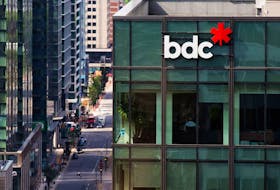Identifying wine made in West Bank settlements as a product of Israel is “deceptive” and interferes with the Charter right to free expression by making it harder for Canadians to “buy conscientiously,” the Federal Court ruled Monday.
The case, which began two years ago as a complaint about wine labels to the Canadian Food Inspection Agency (CFIA), reaches into both a fractious foreign policy debate and Canadians’ fundamental rights of free speech.
“Identifying settlement wines incorrectly as “Products of Israel” inhibits the ability of such individuals to express their political views through their purchasing choices, thereby limiting their Charter-protected right to freedom of expression,” reads the Federal Court decision by Justice Anne Mactavish. According to CFIA guidelines, the labels are “false, misleading and deceptive.”
The court decision references the Boycott, Divestment and Sanctions (BDS) movement to boycott Israeli products and services in an attempt to apply political pressure on the country to withdraw from the West Bank. Although the court heard extensive arguments on the legality of the Israeli settlements, it steered clear of making any strong statements on the issue and instead focused on the administrative decisions of the CFIA and how they brush up against the Charter. In her decision, Mactavish notes that all parties agreed that the settlements, whatever their legality, were not part of the territorial boundaries of the State of Israel.
The government had argued that “in the absence of a recognized country denomination for the territory in which the settlement wines are product …” it was reasonable to conclude that those wines could be labelled products of Israel. Additionally, the government argued, the labels were never designed to give Canadians information about “issues of public international law.”
In the decision, Mactavish agreed that lawmakers were mostly concerned about “matters of health,” but transcripts from the House of Commons debate on the legislation show they were also worried about preventing deception in the “sale of goods consumed by the public.”
“There are substantive errors in the judgment,” said Shimon Koffler Fogel, the president of the Centre for Israel and Jewish Affairs Current, after a preliminary review of the lengthy court decision. “This is why we are urging the government of Canada to appeal this misguided ruling.”
The decision has been lauded as a victory by pro-Palestinian activists.
“It is our fervent hope that the government of Justin Trudeau will accept the court’s well-reasoned decision and will not waste yet more taxpayer dollars by appealing this decision,” wrote Dimitri Lascaris , who argued the case for the applicant.
The initial complaint about the wine labels was made by David Kattenburg, described in court documents as a “wine lover and activist.” Kattenburg has argued that labelling settlement wines as products of Israel “facilitates Israel’s de facto annexation of large portions of the West Bank.”
The CFIA originally agreed with Kattenburg’s concerns about the incorrect labels and the Liquor Control Board of Ontario even issued a directive to its vendors not to label the settlement wines as products of Israel. But after lobbying from B’nai Brith, a Jewish advocacy organization, and discussions between the CFIA and the Global Affairs department, the agency reversed the decision.
Kattenburg appealed the decision to the CFIA’s complaints and appeals office, bemoaning the fact that he hadn’t been informed of any of the previous developments, and the appeals office agreed that he had been treated shabbily by the CFIA but that its decision was sound. The CFIA complaints and appeals office pointed out that the trade deal between Canada and Israel defines “Israeli territory” as any place where the country’s custom laws are applied, which would include the West Bank. The decision also noted that questions about foreign policy are “outside its mandate.” Kattenburg then requested judicial review at the Federal Court, which ultimately found the labels misleading.
As to how the settlement wines should now be labelled, “it is not appropriate for this Court to determine,” the decision reads.
• Email: [email protected] | Twitter: stuartxthomson
Copyright Postmedia Network Inc., 2019








